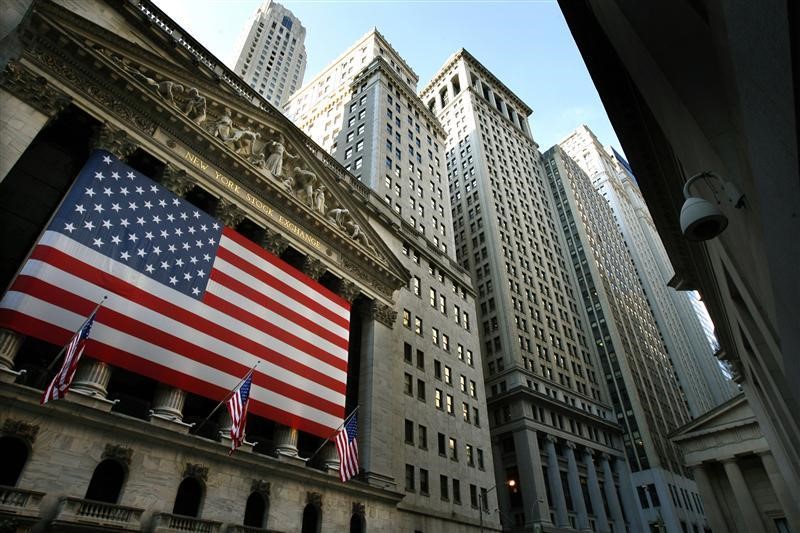This post was originally published on this site
https://i-invdn-com.akamaized.net/news/LYNXMPEB4G09M_M.jpg © Reuters. U.S. Crackdown on Chinese Stocks Hasn’t Been Ruled Out Yet
© Reuters. U.S. Crackdown on Chinese Stocks Hasn’t Been Ruled Out Yet(Bloomberg) — There is a sense in the upper echelons of Wall Street that discussions within the Trump administration about limiting Americans’ investment in Chinese companies will ultimately lead to nothing.
One top bank executive after another said so when asked in private conversations in Davos last month. The signals they’re getting from administration officials are in part, they say, a result of their lobbying efforts to squelch the idea as something that will only add to market volatility and curb their ability to expand in China.
And yet, many top Trump aides continue to discuss both privately and publicly the possibility of imposing such restrictions — as part of their effort to protect investors and press Beijing to adhere to U.S. rules even after an initial trade pact was signed between the world’s two biggest economies in January. Larry Kudlow, the White House economic adviser, is among them, saying in a recent interview that multiple government agencies are actively studying the matter.
“We’ve looked at a lot of things,” Kudlow said. “We just haven’t come up with any concrete policies, but it’s an inter-agency study.”
Of course, there’s no certainty in those comments that action will be taken, especially from an administration that is known to be erratic in its policy implementation. It’s also true that, given all the concern today about how the coronavirus outbreak will hamstring the economy in China and across the globe, the threat of U.S. restrictions on Chinese investments is far from the most pressing concern on Wall Street.
Legislative Push
Still, the possible crackdown on investment flows remains a major issue.
In Congress, Senator Marco Rubio continues to lead the legislative push to examine the implications of more U.S. investor money going into Chinese stocks and bonds. Last month, a Congressional commission heard a full day of testimony from experts on “China’s Quest for Capital.”
“There is a growing bipartisan consensus in Congress that the financial relationship between the U.S. and China deserves increased scrutiny – particularly how the Chinese Communist Party exploits American capital markets and transparency rules,” said Rubio, a Florida Republican. “While I hope the administration will take action, it is clear that Congress must act to hold Beijing accountable for their malign activities that put U.S. retail investors and pensioners at risk.”
Rubio has sponsored a number of bills on the issue including one that would prevent a government retirement fund from investing in some Chinese companies and another that could block some Chinese stocks from trading on U.S. exchanges if they don’t comply with U.S. auditing rules.
Kudlow said the administration is pursuing its own plan apart from lawmakers like Rubio, even as there is “some confluence” between their demands and what the White House is asking for. He said the effort isn’t “aimed only or directly at China” and added that the White House never intended to delist Chinese companies from U.S. exchanges.
Goldman Report
After reports late last year that the administration was discussing ways to limit U.S. investors’ portfolio flows into Chinese companies, Wall Street firms plotted worst-case scenarios. Researchers at Goldman Sachs Group Inc (NYSE:). issued an analysis in October on the risk of restrictions, which estimated U.S. investors held about $785 billion of Chinese equities as of September.
The report also highlighted the potential impact to the market for initial public offerings — a key source of profit for banks as well as private equity, venture and asset management funds. The U.S. market has been one of the three most common destinations for Chinese companies raising capital, the Goldman analysis said.
When the U.S. and China signed an initial trade deal last month, much of Wall Street turned its attention back to Beijing’s promise to further open its financial markets and away from any threat of restrictions to them.
The trade agreement accelerates efforts to make it easier for U.S. banks to operate in China, stipulating that Beijing will remove foreign ownership caps for securities firms in April. Global investment banks have previously faced hurdles to expanding their businesses in the Asian nation. The country’s laws required foreign firms do local securities business through joint ventures with Chinese partners, who kept controlling stakes.
Read more: China Speeds Up Opening of Market to Investment Bank Giants
“Right now the administration has little interest in antagonizing the Chinese in ways that could jeopardize the phase-one purchasing pledges, and coronavirus pressures only add to that,” said Leland Miller, chief executive officer of the China Beige Book. “Even so, the idea of prohibiting government pension money from funding Chinese companies, especially ones with close connections to the military, makes for a remarkably attractive political lever. If the White House starts feeling heat on China in the run-up to the election, we could see this idea suddenly resurface.”


